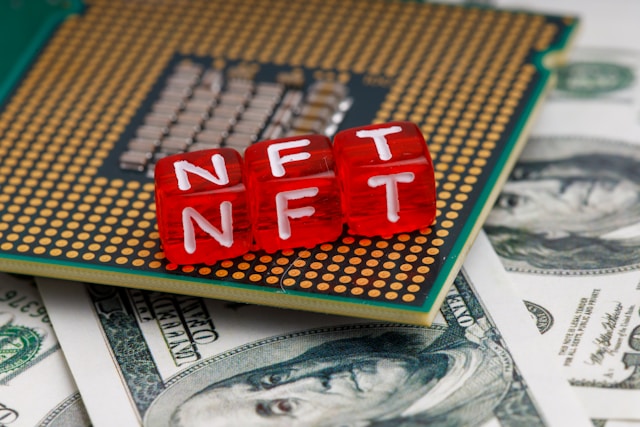
- September 9, 2023
- August Prosper
- 0
When it comes to growing your money quickly, short-term investment options can be your ticket to financial success. If you’re looking to make some quick gains without locking your money away for years, you’re in the right place. In this comprehensive guide, we’ll walk you through five unique and easy-to-understand short-term investment options that could help you achieve your financial goals faster than you think.
High-Yield Savings Accounts
High-yield savings accounts are the unsung heroes of short-term investments. They offer a safe and hassle-free way to grow your money. These accounts typically provide a higher interest rate compared to regular savings accounts, allowing your money to work for you while remaining easily accessible. The interest is compounded, which means you earn interest on your initial deposit and the interest it accumulates.
Therefore, if you’re looking for a safe place to park your cash while still earning a decent return, a high-yield savings account is a fantastic choice. They are typically offered by online banks and come with no minimum balance requirements. Plus, the FDIC (Federal Deposit Insurance Corporation) insures your funds up to $250,000, so your money is safe and sound.
Certificates of Deposit (CDs)
Certificates of Deposit, or CDs, are another appealing option for short-term investments. They function much like a savings account, but with a fixed interest rate and a predetermined term. CDs come in various term lengths, ranging from a few months to several years. The longer the term, the higher the interest rate you’ll earn.
If you can afford to set aside your money for a specific period, CDs can offer higher interest rates than regular savings accounts. However, keep in mind that your money will be locked in until the CD matures, so this option is best for those who don’t need immediate access to their funds.

Treasury Securities
Treasury securities are government-backed bonds that are considered one of the safest investments in the world. They are issued by the U.S. Department of the Treasury and come in three main types: Treasury bills (T-bills), Treasury notes (T-notes), and Treasury bonds (T-bonds).
Treasury bills are the shortest-term option, with maturities ranging from a few days to one year. They are sold at a discount to their face value and pay the face value upon maturity, making them an attractive choice for short-term investors. Treasury notes and bonds have longer maturities, making them suitable for those with slightly longer investment horizons.
Peer-to-Peer Lending
In recent years, peer-to-peer lending has gained popularity as a unique short-term investment option. This method involves individuals lending money to other individuals or small businesses through online platforms. The platform connects borrowers with investors, offering an opportunity to earn attractive returns.
Peer-to-peer lending platforms provide a range of investment options with varying levels of risk and potential returns. You can choose to fund personal loans, small business loans, or other projects based on your risk tolerance and investment goals. While peer-to-peer lending can yield excellent returns, it’s essential to diversify your investments to spread the risk.
Money Market Funds
Money market funds are mutual funds that invest in short-term, low-risk securities such as government bonds, certificates of deposit, and high-quality corporate debt. These funds aim to maintain a stable net asset value (NAV) of $1 per share, making them a reliable choice for preserving your capital while earning a bit more than a traditional savings account.
Money market funds offer liquidity, meaning you can access your money quickly if needed. They are an excellent option for investors seeking a combination of safety, liquidity, and modest returns. However, be aware that while they are considered low risk, money market funds are not FDIC-insured, so there is still a minimal level of risk involved.
FAQs
FAQ 1: What Are Short Term Investment Options?
Short-term investment options are financial instruments designed for individuals who want to grow their money over a relatively brief period, typically ranging from a few months to a few years. These options offer quicker access to your funds compared to long-term investments, making them suitable for various financial goals.
Short-term investment options can include high-yield savings accounts, certificates of deposit (CDs), Treasury securities, peer-to-peer lending, and money market funds. Each of these options comes with its own set of features and benefits, catering to different risk appetites and objectives.
Short-term investment options are versatile tools for growing your money within a shorter time frame. They often provide liquidity and can serve various purposes, such as building an emergency fund, saving for a down payment on a home, or earning additional income on your savings. These options are generally less volatile than long-term investments, but they may offer lower returns.
FAQ 2: What Are the Benefits of Short Term Investments?
Short-term investments offer several advantages, making them attractive for individuals with specific financial needs. Some key benefits include:
-
- Quick Access to Funds: Short-term investments provide easy access to your money when you need it, making them suitable for emergencies or short-term financial goals.
-
- Lower Risk: Compared to long-term investments like stocks, short-term options are typically less volatile and carry lower risk.
-
- Preservation of Capital: Certain short-term options, like money market funds and high-yield savings accounts, prioritize the safety of your principal while still offering modest returns.
Short-term investments come with a range of benefits, including liquidity, lower risk, and the potential to preserve your capital. These advantages make them an essential part of a well-rounded financial strategy, particularly for meeting immediate or near-term financial goals.
FAQ 3: What Is the Difference Between Short Term and Long Term Investments?
Short-term investments differ from long-term investments primarily in their time horizon and risk-return profile. Here are some key distinctions:
-
- Time Horizon: Short-term investments have a shorter time frame, typically up to a few years, while long-term investments can span decades.
-
- Risk Level: Short-term options are generally lower in risk compared to long-term investments like stocks, which can be more volatile.
-
- Return Potential: Long-term investments may offer higher returns over time, but short-term options are designed for quicker access and liquidity.
The main difference between short-term and long-term investments lies in the time frame and risk involved. Short-term investments prioritize liquidity and capital preservation, while long-term investments aim for potentially higher returns over extended periods.
FAQ 4: Are Short Term Investments Suitable for Everyone?
Short-term investments can be suitable for a wide range of individuals, but they may not be the best fit for everyone. Your choice depends on your financial goals, risk tolerance, and time horizon. Short-term options are ideal for:
-
- Those needing quick access to funds for emergencies or upcoming expenses.
-
- Individuals with a low tolerance for risk who want to protect their capital.
-
- Investors looking for alternatives to traditional savings accounts with higher returns.
While short-term investments offer advantages like liquidity and lower risk, they may not align with long-term investment objectives or those seeking substantial growth over time. It’s essential to assess your unique financial situation and goals before deciding if short-term investments are right for you.
FAQ 5: How Do I Choose the Right Short Term Investment Option?
Selecting the right short-term investment option involves considering several factors:
-
- Risk Tolerance: Determine how much risk you are comfortable with. Options like high-yield savings accounts and money market funds are lower in risk, while others may carry more.
-
- Time Horizon: Assess the length of time you can invest. Some options, like CDs, require you to lock in your money for a specific period.
-
- Financial Goals: Consider your objectives, whether it’s building an emergency fund, saving for a vacation, or generating additional income.
-
- Diversification: Spreading your investments across different options can help manage risk and optimize returns.
Choosing the right short-term investment option is crucial for achieving your financial goals. Carefully evaluate your risk tolerance, time horizon, and specific objectives to make an informed decision that aligns with your needs.
FAQ 6: Can Short Term Investments Provide High Returns?
Short-term investments are generally considered lower in risk compared to long-term options, such as stocks. While they offer the benefit of liquidity and capital preservation, they tend to provide more modest returns. High-yield savings accounts and CDs may offer slightly higher interest rates than regular savings accounts, but they are unlikely to match the potential returns of long-term investments.
Short-term investments are not typically known for high returns. They prioritize safety and liquidity over potential growth. If your primary goal is to maximize returns, long-term investments like stocks or real estate may be more suitable, although they come with higher risk and longer time horizons.
**FAQ 7: Are Short-Term Investments Secure?
Short-term investments vary in terms of security. Some, like high-yield savings accounts and Treasury securities, are considered safe and low-risk. Others, such as peer-to-peer lending, involve higher levels of risk because they are dependent on the repayment of borrowers.
It’s essential to research and understand the specific short-term investment option you’re considering, assess its risk level, and ensure it aligns with your financial objectives and risk tolerance.
The security of short-term investments depends on the type of investment you choose. Some are very secure, while others carry higher risk. It’s crucial to conduct due diligence and consider your own risk tolerance when selecting short-term investments for your portfolio.
Conclusion
In the world of finance, finding the right short-term investment option can be a game-changer for your financial goals. Whether you opt for high-yield savings accounts, CDs, Treasury securities, peer-to-peer lending, or money market funds, each option has its unique advantages. The key is to align your investment choice with your financial objectives and risk tolerance.
Therefore, explore these short-term investment options carefully, consider diversifying your portfolio, and consult with a financial advisor if needed. With the right strategy and a clear understanding of your goals, you can make the most of these opportunities and watch your money grow in the short term. Remember, investing wisely today can lead to quick gains tomorrow. Start your journey towards financial success now!


























